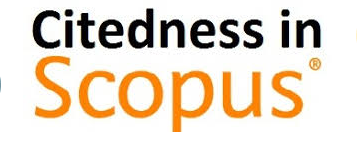Legal Framework Synergy: Indonesia and Malaysia's Role in Advancing Islamic Fintech Regulations
DOI:
https://doi.org/10.18196/iclr.v7i2.25451Abstract
The rapid advancement of digital technology has significantly influenced both conventional and Islamic financial systems. Regulatory frameworks for these systems differ, reflecting the unique characteristics of Islamic finance. Indonesia and Malaysia, as Muslim-majority countries, have drawn international attention for their roles in developing the Islamic financial industry. Effective growth of this industry requires robust regulatory support to achieve its objectives, particularly in advancing financial technology. This study investigates the regulatory frameworks of Indonesia and Malaysia to determine their adequacy in addressing challenges and supporting Islamic financial technology development. Using a normative legal research method, this study analyzes legal norms and regulations from both countries, supported by references from books, journals, articles, and statutory provisions on Islamic financial technology. The findings reveal that the regulatory systems in Indonesia and Malaysia differ significantly and are not yet fully capable of fostering the progressive growth of Islamic financial technology. The study concludes with recommendations for enhancing regulatory frameworks to ensure they accommodate rapid technological advancements while maintaining the principles of Islamic finance. These insights provide valuable guidance for policymakers and stakeholders in navigating the evolving landscape of Islamic fintech
References
Ab Hamid, Nor ‘Adha, Ahmad Yani Ismail, and Tuan Nurhafiza Raja Abdul Aziz, ‘Regulatory Framework and Legal Challenges in Digitalization of Islamic Finance’, International Journal of Law, Government and Communication, 6.24 (2021), 59–75 <https://doi.org/10.35631/ijlgc.624004>
Abd Rani, N. F., A. C. Seman, A. Ab Rahman, and M. R. Z’aba, ‘A Viewpoint of Islamic Financial Technology (i-Fintech) in Malaysia’, Labuan e Journal of Muamalat and Society (LJMS), 15 (2021), 97–110
Amsyar, Izwan, Ethan Christopher, Arusyi Dithi, Amar Najiv Khan, and Sabda Maulana, ‘The Challenge of Cryptocurrency in the Era of the Digital Revolution: A Review of Systematic Literature’, A Review of Systematic Literature. Aptisi Transactions on Technopreneurship (ATT), 2.2 (2020), 153–159 <https://doi.org/10.34306/att.v2i2.96>
Apik Anitasari Intan Saputri, ‘Capital Market In Perspective Law Of Sharia Economy’, Khuluqiyya: Jurnal Kajian Hukum Dan Studi Islam, 1.1 SE-Articles (2019), 1–19 <https://doi.org/10.56593/khuluqiyya.v1i1.19>
Aulia Fitria Yustiardhi, Aulia Arifatu Diniyya, Farihah Amirah Ahmad Faiz, Nur Shazni Subri, and Zahra Nabila Kurnia, ‘Issues and Challenges of the Application of Mudarabah and Musharakah in Islamic Bank Financing Products’, Journal of Islamic Finance, 9.2 SE-Articles (2020), 26–41 <https://doi.org/10.31436/jif.v9i2.482>
Aulia, Mahdiah, Aulia Fitria Yustiardhi, and Reni Oktavia Permatasari, ‘An Overview of Indonesian Regulatory Framework on Islamic Financial Technology (Fintech)’, Jurnal Ekonomi & Keuangan Islam, 6.1 (2020), 64–75 <https://doi.org/10.20885/jeki.vol6.iss1.art7>
Bakry, Muammar, Rahman Ambo Masse, Lukman Arake, Muhammad Majdy Amiruddin, and Abdul Syatar, ‘How to Attract Millennials? Indonesian Sharia Banking Opportunities’, WSEAS Transactions on Business and Economics, 18 (2021), 376–85 <https://doi.org/10.37394/23207.2021.18.38>
Dz., Abdus Salam, ‘Inklusi Keuangan Perbankan Syariah Berbasis Digital-Banking: Optimalisasi Dan Tantangan’, Al-Amwal : Jurnal Ekonomi Dan Perbankan Syari’ah, 10.1 (2018), 63 <https://doi.org/10.24235/amwal.v10i1.2813>
Fajri Nur Setyawan, ‘Analysis of the Basics of Fatwa Gold Credit DSN-MUI Perspective of Qaidah Ushul Fiqh’, Demak Universal Journal of Islam and Sharia, 1.03 SE-Articles (2023), 166–78 <https://doi.org/10.61455/deujis.v1i03.47>
Harahap, Asrul, and Fauziah Lubis, ‘Legal Protection of Investors Due to Misleading Information in the Sharia Capital Market Perspective of DSN MUI Fatwa Number 80 of 2011’, Indonesian Interdisciplinary Journal of Sharia Economics (IIJSE), 6.3 SE-Articles (2023) <https://doi.org/10.31538/iijse.v6i3.4013>
Hassan, Rusni, Ahmad Azam Othman, Muhammad Naim Omar, Mohammad Deen Mohd. Napiah, Mohamad Asmadi Abdullah, Mahamad Arifin, and others, ‘Shariah Risk Management Process for Islamic Financial Institutions in the Context of Shariah Governance Framework 2010’, UUM Journal of Legal Studies, 8 (2017), 1–15 <https://doi.org/10.32890/uumjls.8.2017.4642>
Heris Suhendar, Oyo Sunaryo Mukhlas, and Atang Abd. Hakim, ‘Legal Politics of the Existence of Fatwa in Islamic Financial Institutions: Evidence from Indonesia’, Jurnal Hukum Islam, 21.2 (2023), 279–308 <https://doi.org/10.28918/jhi_v21i2_03>
Izzah, Nurul, and Sri Sudiarti, ‘Generation Z’s Level Of Muslim Understanding On Sharia Capital Market’, Al-Masharif: Jurnal Ilmu Ekonomi Dan Keislaman, 10.1 (2022), 54–69 <https://doi.org/10.24952/masharif.v10i1.5771>
Jamaruddin, Wahida Norashikin, and Ruzian Markom, ‘The Application of Fintech in the Operation of Islamic Banking Focussing on Islamic Documentation: Post-Covid-19’, INSLA E-Proceedings, 3.1 (2020), 31–43
Jihad, Azka Amalia, Khairul Azmy, Nazaruddin A. Wahab, Azman Sayuti, and Faisal Fauzan, ‘The Role of the Supervisory Board in the Development of Sharia Cooperatives in Aceh After the Enactment of the Sharia Financial Institutions Law’, Samarah, 8.2 (2024), 1054–76 <https://doi.org/10.22373/sjhk.v8i2.19610>
Kholis, Nur, ‘Perbankan Dalam Era Baru Digital’, Economicus, 12.1 (2020), 80–88 <https://doi.org/10.47860/economicus.v12i1.149>
Kurniawan, Rahmad, Enriko Tedja Sukmana, and Ahmad Dakhoir, ‘Transformation of Sharia Financial Institutions the Case of Aceh: Politics, Strategy and Implementation’, FINANSIA : Jurnal Akuntansi Dan Perbankan Syariah, 6.2 (2023), 131–52 <https://doi.org/10.32332/finansia.v6i2.7533>
Latifah, Sri Wahjuni, and Ahmad Waluya Jati, ‘The Use Of Sharia Fintech On MSMEs Performance: Mediation Of Interest In Use Of Transactions’, Jurnal Reviu Akuntansi Dan Keuangan, 13.2 (2023), 463–80 <https://doi.org/10.22219/jrak.v13i2.23419>
Lumpkin, Stephen, and Sebastian Schich, ‘Banks, Digital Banking Initiatives and the Financial Safety Net: Theory and Analytical Framework’, Journal of Economic Science Research, 3.1 (2019) <https://doi.org/10.30564/jesr.v3i1.1113>
Maf’ula, Faricha, and Denizar Abdurrahman Mi’raj, ‘Islamic Insurance in Indonesia: Opportunities and Challenges on Developing the Industry’, Journal of Islamic Economic Laws, 5.1 (2022), 116–38 <https://doi.org/10.23917/jisel.v5i1.16764>
Mayangsari, Risfiana, ‘The Islamic Economic Law Perspective on Sharia Mutual Fund Investment’, INNOVATIO: Journal for Religious Innovation Studies, 20.2 (2020), 182 <https://doi.org/10.30631/innovatio.v20i2.116>
Miskam, Surianom, Farah Mohd Shahwahid, and Nawal Sholehuddin, ‘Catching the Fintech Wave in Islamic Finance: Regulatory Approach for Malaysia’, 4th Muzakarah Fiqh & International Fiqh Conference (MFIFC 2018), October, 2018, 223–35
Mohd, Nurul’Ain, Mastura Razali, Muhammad Hasif Yahaya, and Zainur Nadiyah Baharuddin, ‘The Roles of Islamic Financial Technology (FINTECH) in Fostering Financial Inclusion in Malaysia’, Management and Accounting Review, 23.1 (2024), 329–55 <https://doi.org/10.24191/mar.v23i01-11>
Mubarok, Anas Bayan, and Muhamad Izazi Nurjaman, ‘Analysis Of Investor Behavior In The Ethical Review Of Sharia Economic Law’, AT-TIJARAH: Jurnal Penelitian Keuangan Dan Perbankan Syariah, 6.1 SE-Articles (2024), 22–37 <https://doi.org/10.52490/attijarah.v6i1.2803>
Muhammad Rais, and Harya Pramata, ‘Regulating Sharia Financial Transactions: The Role of the Indonesian Ulema Council (MUI) and Implications for Islamic Finance in Indonesia’, Law and Economics, 18.1 SE-Articles (2024), 1–11 <https://doi.org/https://journals.ristek.or.id/index.php/LE/article/view/63>
Murdani, Danial, ‘Globalization and Paradigm of Islamic Law Implementation in Aceh’, Mazahib Jurnal Pemikiran Hukum Islam, 21.1 (2022), 1–28 <https://doi.org/10.21093/mj.v21i1.4323>
Omar, Habiba H, Mohd Effandi Yusoff, and Abdallah A Sendaro, ‘Regulatory Framework for Islamic Banking in Tanzania’, Jurnal Kemanusiaan, 15.1 (2017)
Pati, Umi Khaerah, Pujiyono, and Pranoto, ‘Sharia Fintech as a Sharia Compliance Solution in the Optimization of Electronic-Based Mosque’s Ziswaf Management’, Padjadjaran Jurnal Ilmu Hukum, 8.1 (2021), 66 <https://doi.org/10.22304/pjih.v8n1.a3>
Rahman, Yogi Muhammad, Renny Supriyatni Bachro, Etty H. Djukardi, and U. Sudjana, ‘Digital Asset/Property Legal Protection in Sharia Banking Financing and Its Role in Indonesian Economic Development’, International Journal of Criminal Justice Sciences, 16.2 (2021), 149–61 <https://doi.org/10.5281/zenodo.4756067>
Razak, Muhammad Ilyas Ab, Nur Akma Mohd Dali, Guru Dhillon, and Azwina Wati Abdull Manaf, ‘Fintech in Malaysia: An Appraisal to the Need of Shariah-Compliant Regulation’, Pertanika Journal of Social Sciences and Humanities, 28.4 (2021), 3223–33 <https://doi.org/10.47836/PJSSH.28.4.40>
Rosida, Ika Nazilatur, ‘Analisis Potensi Perbankan Syariah Di Indonesia Dalam Mempertahankan Eksistensi Pada Era Digital’, Human Falah: Jurnal Studi Ekonomi Dan Bisnis Islam, 9.1 (2022), 118–32 <https://doi.org/10.30829/hf.v9i1.11454>
Segarawasesa, Fajar Satriya, ‘Analysis of Factors Affecting Sharia Compliance Levels in Sharia Banks in Indonesia’, Asian Journal of Islamic Management (AJIM), 3.1 SE-Articles (2021), 56 <https://doi.org/10.20885/ajim.vol3.iss1.art6>
Soumena, F Y, A I Anwar, R Arsyad, R F Laming, and ..., ‘Institutional Framework and Regulatory Challenges in the Development of the Sharia Financial Sector in Indonesia: A Political Economy Perspective’, Jurnal Ar-Ribh, 6.2 (2023), 61–72 <https://doi.org/10.26618/jei.v6i2.12812>
Stevani, Winnie, and Hari Sutra Disemadi, ‘Urgency of Cryptocurrency Regulation in Indonesia: The Preventive Action for Ransomware Crime’, Hang Tuah Law Journal, 5.1 (2021), 52–66 <https://doi.org/10.30649/htlj.v5i1.32>
Sugiarto, Irwan, and Hari Sutra Disemadi, ‘Consumers Spiritual Rights In Indonesia : A Legal Study Of Sharia Fintech J’, Jurnal IUS Kajian Hukum Dan Keadilan, 1.January 2021 (2020), 145–60
Suharbi, Muhammad Akbar, and Hendro Margono, ‘Kebutuhan Transformasi Bank Digital Indonesia Di Era Revolusi Industri 4.0’, Fair Value: Jurnal Ilmiah Akuntansi Dan Keuangan, 4.10 (2022), 4749–59 <https://doi.org/10.32670/fairvalue.v4i10.1758>
Sulaim, Ummi, Ahmad Rashid, Aisyah Abdul Rahman, and Ruzian Markom, ‘The Regulatory Framework on Liquidity Risk Management of Islamic Banking in Malaysia’, International Journal of Business and Society, 19.3 (2018), 332–52
Tarmidzi, Karimatul Khasanah, Agus Arwani, Kholil Said, and Mahendra Utama Cahya Ramadhan, ‘The Pursuit of Legal Harmony in the Integration of Sharia Economic Law Compilation, OJK Regulations, and DSN-MUI Fatwas’, Hikmatuna : Journal for Integrative Islamic Studies, 10.1 SE-Artikel (2024), 121–39 <https://doi.org/10.28918/hikmatuna.v10i1.7342>
Uchenna Innocent Nnaomah, Samuel Aderemi, David Olanrewaju Olutimehin, Omamode Henry Orieno, and Damilola Oluwaseun Ogundipe, ‘Digital Banking and Financial Inclusion: A Review of Practices in the Usa and Nigeria’, Finance & Accounting Research Journal, 6.3 (2024), 463–90 <https://doi.org/10.51594/farj.v6i3.971>
Unal, Ibrahim Musa, and Ahmet Faruk Aysan, ‘Fintech, Digitalization, and Blockchain in Islamic Finance: Retrospective Investigation’, FinTech, 1.4 (2022), 388–98 <https://doi.org/10.3390/fintech1040029>
Downloads
Published
Issue
Section
License
Copyright (c) 2025 Istianah Zainal Asyiqin

This work is licensed under a Creative Commons Attribution 4.0 International License.
By publishing with Indonesian Comparative Law Review, authors agree to the following terms:
1. Authors retain the copyright to their work and grant Indonesian Comparative Law Review the right of first publication, while also licensing the work under a Creative Commons Attribution License (CC BY 4.0). This license permits others to share the work, provided they acknowledge the author and the initial publication in this journal.
2. Authors may enter into separate agreements for non-exclusive distribution of the published version of their work, such as posting it to an institutional repository or including it in a book, with acknowledgement of its initial publication in this journal.
3. Authors are encouraged to share their work online, for example on institutional repositories or personal websites, both before and during the submission process. This practice can lead to productive exchanges and increased citation of published work.



